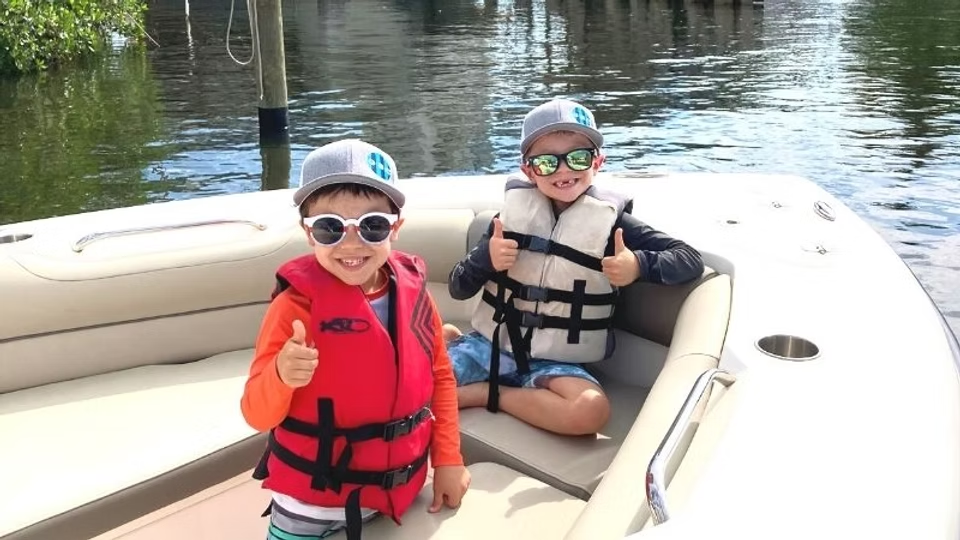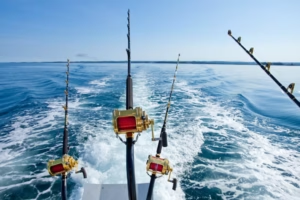
Did you know that the first boat can be found all the way back in 8,000 B.C. in Holland? Are you a fan of boating but aren’t sure whether you have the top boating safety tips?
In this article, we’ll break down the top safety tips that are easy to forget but are important to remember. Read on, captain on, and explore how to make sure that you have the safest boat on the 7 seas.
1. Check the Weather
While you might be tempted to take the boat out whenever you have time, it’s important to be mindful of the weather. It’s a good idea to take a look and see if there are any strong gusts of wind or thunderstorms coming through.
Using a Barometer
It’s a good idea to use a barometer to record and check the weather. Compare current to previous readings to notice a change in patterns.
2. Life Jackets
Whether you’re using boat rentals or have a boat membership, you’ll need to have life jackets for everyone. Keep them in a convenient location that anyone can grab, and don’t keep them hidden in a closet. You can find convenient and comfortable life jackets as well.
3. Plan Ahead
It’s a good idea to let someone onshore know before you head off. If anything happens, then they’ll know where to look for you.
Having a plan in action saves many boaters over the years. Avoid a bad situation where no one knows where you are, and you have to figure out how to get back.
4. Have a First Aid Kit
Never leave without a first aid kit. There are different accidents that can occur while boating, such as a wave causing you to fall and hurt yourself.
Even terrible sunburns can occur. It’s a way to treat yourself when medical staff aren’t nearby.
5. Use Navigation Rules
If you’re the operator, you’re responsible for the safety of the passengers on your boat. You need to have knowledge of navigation rules such as aids to navigation, overtaking another vessel, and meeting head-on. Be mindful of your surroundings at all times.
6. Know Boating Laws
Boating laws can vary from location to location so it’s important to know the local boating laws. If you ignore boating laws, it can lead to fines, jail time, or a ticket.
7. Have Your Tool Box
Different mechanical or minor problems can occur while out on the water. It’s a good idea to keep a toolbox handy for these events.
Small glitches can occur, engine troubles, spark plug problems, and more. It’s a great way to protect yourself in case something like this does occur.
8. Avoid Alcohol
As the operator, you’ll be in charge of driving the boat. Never consume alcohol while being in charge. It’s similar to driving a car after drinking alcohol. Many boating accidents are due to alcohol use.
9. Carbon Monoxide Issues
Avoid carbon monoxide malfunctions by ensuring you have enough fresh air that circulates through the boat. Ensure that all of your passengers understand what the symptoms of carbon monoxide are, and how to prevent it.
10. Avoid Swimming at Marinas
You’ll want to avoid swimming in boating areas or marinas. This is because the boats are connected to shore power. Any stray power in the water can cause electric shock.
11. Be Mindful of the Engine
It’s a good idea to wear the boat’s engine cut-off switch lanyard for safety purposes. Pay attention to the propeller area if people are in the water.
If the engine is on or idling, don’t let passengers exit or board your boat. Pay attention to any boats that have tubers or skiers.
12. Have a Checklist
Have a checklist and check it twice. You’ll want to ensure that you follow the checklist such as prepping the boat for launch. When the boat returns to the dock you’ll want to have enough time to clean and secure it.
13. Teamwork
Get your entire family involved in a safe and successful boat trip. Make it a team effort, and even the younger crewmembers can help out. You can assign responsibilities to kids who are at least 5 or older.
14. Safety Briefing
Before leaving, it’s important to educate all of your passengers on safety before, during, and at the end of the trip. Let them know about different safety equipment and how to use it, such as flotation devices and life jackets. Let them know that if they have any questions, you’ll answer them.
A Common Boating Mistake
There are different common boating mistakes that can be avoided with proper planning and safety. For example, not having enough line for anchoring.
When you take your boat out you’ll want to ensure that you have enough line to anchor your boat in a location. This can mean that you can get out and swim.
You’ll want it to be about 5-7 times the depth of the water in calm weather. You’ll also want to take into account the distance from the surface from where the anchor attaches at the bow. For rougher waters, you’ll want to use 10 times the depth.
Exploring Boating Safety Tips
Now that you’ve explored these boating safety tips that are easy to forget, you should have a better idea of how to prepare yourself for your next voyage. Remember, it’s important to plan ahead and over plan than under!
Are you dreaming of going boating in sunny and beautiful Florida? Dreaming of taking a boat out without having the hassle of maintenance or upkeep? Contact us today, and we’ll go over the different boating membership options we have available to get you out on the water!
#BoatClub #BoatingSafetyTips #BoatSafety #FloridaBoating


